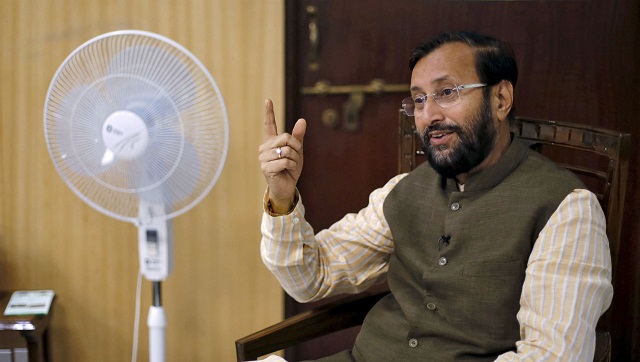New Delhi: The Union Cabinet on Wednesday approved a bill under which Kashmiri, Dogri and Hindi, apart from the existing Urdu and English, will be the official languages in the union territory of Jammu and Kashmir.
Additionally, the Cabinet also approved ‘Mission Karmayogi’, a scheme for bringing post-recruitment reforms in civil services.
Union Minister Prakash Javadekar announced the decisions during a press conference on Wednesday.
He said the Jammu and Kashmir Official Languages Bill, 2020 will be introduced in Parliament in the upcoming Monsoon Session. The Bill received the Cabinet nod on Wednesday at a meeting presided by Prime Minister Narendra Modi.
The minister did not divulge further details saying the Bill will be debated in Parliament soon. Union Minister Jitendra Singh added that the government has accepted the long pending demand of the region for the inclusion of Dogri, Hindi and Kashmiri as officials languages in Jammu and Kashmir.
“It is not only a fulfilment of a long-pending public demand of the region but also in keeping with the spirit of equality which was ushered in after 5 August last year,” he told reporters.
Meanwhile, Javadekar added that through ‘Mission Karmayogi’, officers and government employees will get an opportunity to improve their performance.
A council, headed by the prime minister and having chief ministers as members, will approve the civil services capacity building plans under the scheme, he said.
“Today the Union Cabinet under Prime Minister Narendra Modi decided to bring this very big, post-recruitment reform, where an opportunity will be given to officers and employees to improve their own performance,” he said.
Javadekar said this is the biggest human resource development programme proposed by the government.
He said during its last meeting, the Cabinet had approved the setting up of a National Recruitment Agency which was a pre-recruitment reform.
This will help end subjective evaluation, and ensure scientifically-devised, objective and real-time assessment of employees, Singh added, about ‘Mission Karmayogi’.
“Mission Karmayogi is an endeavour to reincarnate a government servant into an ideal karmayogi to serve the nation by enabling him to be creative, to be constructive, to be pro-active and technically empowered,” he told reporters.
“The endeavour is also to end the culture of working in silos and to overcome the multiplicity of training curriculum which we have because of the institutions spread all over the country, with the introduction of a common platform for uniform realisation of nation’’s vision and of our shared aspiration and our shared future goals,” Singh added.
This way, Singh said, it will provide a mechanism for continuous capacity building, a constant updating of the talent pool and also provide an equal opportunity of professional as well as personal growth and a stream of self training for value addition at all levels.
Department of Personnel and Training secretary C Chandramouli said Mission Karmayogi is constituted to build future-ready civil servants with right attitude, skills and knowledge, aligned to the vision of a “New India”.
It focuses on competency-led capacity building, he said, adding that it seeks to create a new architecture for civil services capacity building.
He said it looks at a new national architecture for civil services capacity building and focuses not only on individual capacity building but on institutional capacity building and also on process.
In a presentation, he said at present, there is a diverse and fragmented training landscape and there are inconsistencies in training priorities by various training institutions in various ministries which has prevented shared understanding of India’’s developmental aspirations.
He said the mission will have a total outlay of Rs 510 crore over a period of five years.


)




)
)
)
)
)
)
)
)